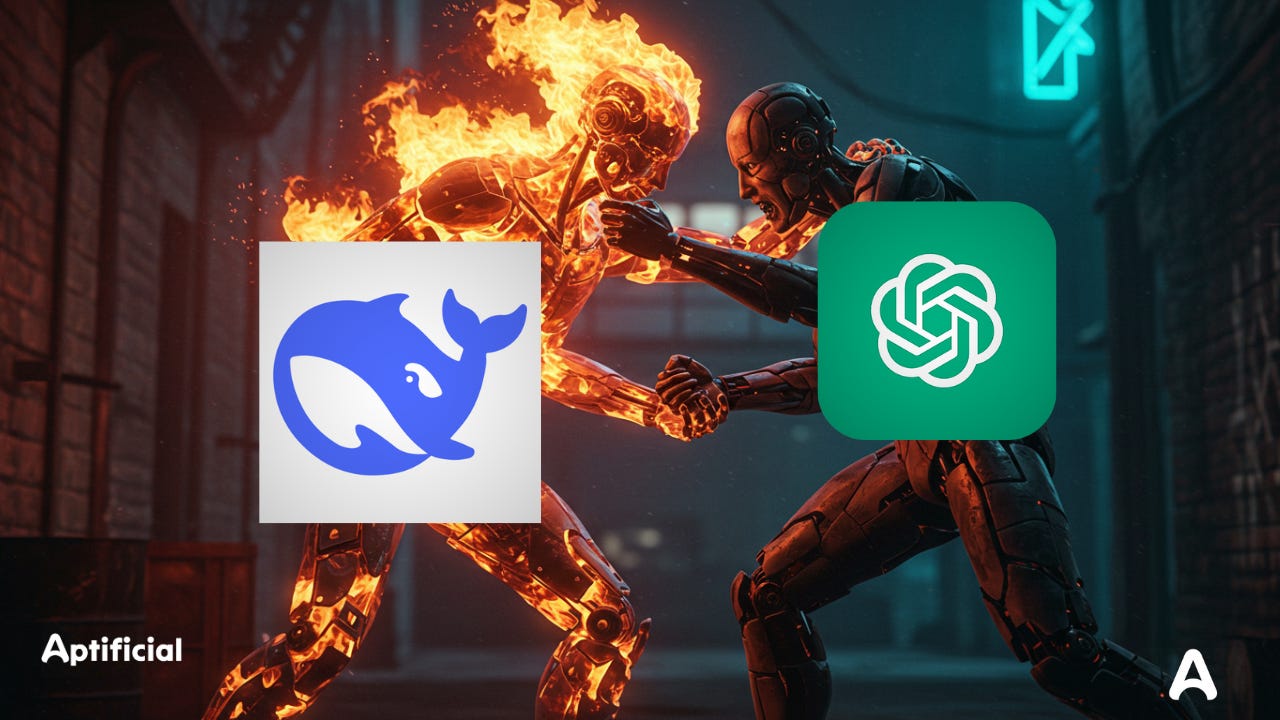Deepseek vs. ChatGPT: A Simple Comparison of AI Chatbots
How does Deepseek stand against ChatGPT?
The rise of AI chatbots has changed how we interact online, making conversations faster and more context-aware. Two standout models in this space are Deepseek and ChatGPT. While they both serve similar purposes, they differ in how they’re built, how they think, and what they’re best at. This comparison breaks down their strengths, weaknesses, and where they shine.
Deepseek vs. ChatGPT: What Makes Them Different?
Deepseek
Deepseek is built for precision and logic. It focuses on structured thinking and accurate data processing, making it a strong choice for tasks that need careful analysis. Unlike chatbots that aim for casual conversation, Deepseek prioritizes facts and logical reasoning. This makes it especially useful in fields like science, finance, and research, where mistakes can be costly.
Deepseek’s strength lies in its ability to handle complex data and provide clear, step-by-step answers. It’s great for professionals who need reliable, fact-based insights—think doctors, lawyers, or researchers. While it might not be as chatty or creative as other AI, it’s a dependable tool for high-stakes decisions.
ChatGPT
ChatGPT, developed by OpenAI, is all about flexibility and natural conversation. It’s trained on a massive amount of text, so it can adapt to different tones, styles, and topics. Whether you’re brainstorming ideas, writing creatively, or just having a casual chat, ChatGPT can keep up. It’s also great at guessing what you mean, even if your question isn’t perfectly clear.
This makes ChatGPT a versatile tool for education, customer service, and creative projects. It’s not as rigid as Deepseek, which means it can handle open-ended questions and casual conversations with ease. However, this flexibility sometimes comes at the cost of precision, so it’s not always the best choice for highly technical or fact-heavy tasks.
How Do They Compare?
1. Thinking Style
- Deepseek: Focuses on logic and accuracy. It’s great for tasks that need clear, step-by-step reasoning, like solving math problems or analyzing data.
- ChatGPT: Excels at creative and flexible thinking. It’s better for brainstorming, writing, or having a natural conversation, though it might not always stick to the facts.
2. Conversation Style
- Deepseek: Tends to be more formal and structured. It gives detailed, information-packed answers, which is great for professionals but might feel a bit stiff for casual users.
- ChatGPT: Feels more natural and conversational. It’s better at adapting to your tone and keeping the discussion flowing, making it ideal for interactive or social situations.
3. Customization
- Deepseek: Best for tasks that need strict logic and accuracy, like research or technical writing. It’s not as flexible but delivers reliable results.
- ChatGPT: Can adapt to a wide range of styles and tones, making it useful for creative writing, teaching, or casual chats. It’s more user-friendly for general purposes.
4. Best Uses
- Deepseek: Perfect for data-heavy fields like science, finance, or law, where precision and accuracy are critical.
- ChatGPT: Shines in creative, educational, or customer-focused roles, where flexibility and natural conversation matter more.
What’s Next for These AI Models?
Both Deepseek and ChatGPT are likely to improve over time. Deepseek could get even better at handling complex data and making predictions, while ChatGPT might reduce its occasional factual errors. In the future, we might see hybrid models that combine the best of both worlds—structured logic and creative flexibility.
Which One Should You Choose?
It depends on what you need:
- Deepseek is the go-to for tasks that require accuracy and logic, like research or technical analysis.
- ChatGPT is better for creative, conversational, or open-ended tasks, like writing or brainstorming.
Both have their strengths, and the best choice depends on your specific needs. As AI continues to evolve, these tools will only get better, offering even more ways to enhance how we work and communicate.




Well explained!!